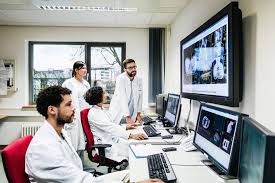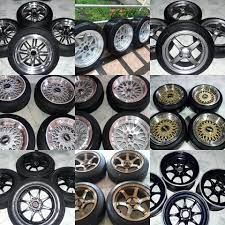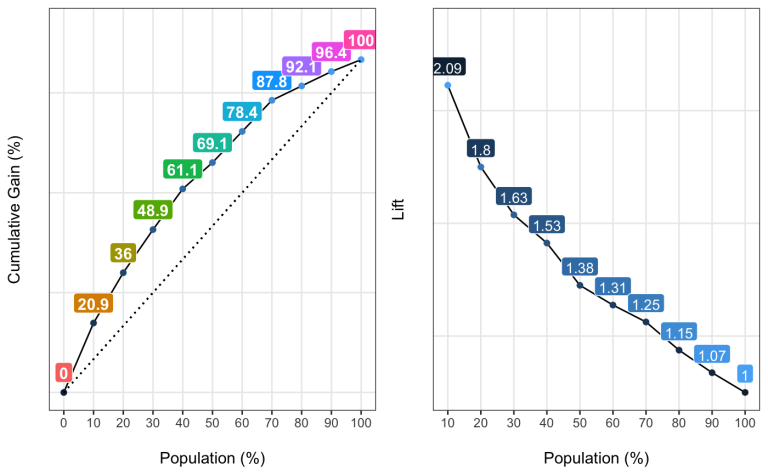HOW TO BECOME A DIAGNOSTICIAN

In the world of healthcare, the role of a Diagnostician is crucial. These skilled professionals play a pivotal role in identifying and understanding various medical conditions through systematic analysis and testing. If you’ve ever wondered how to become a Diagnostician, this article provides a comprehensive guide to navigate this exciting career path.
Table of Contents
Educational Requirements
To embark on the journey of becoming a Diagnostician, a solid educational foundation is essential. This includes acquiring a relevant academic background, undergoing specialized training, and obtaining certifications that validate your expertise in diagnostic practices.
Academic Background
Typically, a strong foundation in the sciences, including biology and chemistry, forms the basis for a career in diagnostics. Many diagnosticians hold degrees in fields such as medical laboratory science, pathology, or a related discipline.
Specialized Training
Beyond academic qualifications, aspiring diagnosticians often undergo specialized training programs. These programs delve into the intricacies of diagnostic procedures, enhancing the practical skills required for accurate and efficient diagnoses.
Certifications
Obtaining certifications is a key step in establishing credibility as a Diagnostician. Certifications, such as those from recognized medical organizations, serve as a testament to your commitment to maintaining high standards in the field.
Skills Needed
Being a Diagnostician requires a unique set of skills that goes beyond academic knowledge. In addition to technical proficiency, diagnosticians must possess analytical skills, attention to detail, and effective communication abilities.
Analytical Skills
The ability to analyze complex medical data and draw meaningful conclusions is a cornerstone of diagnostic work. Diagnosticians must excel in critical thinking and problem-solving to navigate the intricate web of symptoms and test results.
Attention to Detail
Precision is paramount in diagnostics. A keen eye for detail ensures that diagnosticians do not overlook subtle indicators that could be vital in reaching an accurate diagnosis.
Communication Skills
Effectively conveying complex medical information to both patients and fellow healthcare professionals is a crucial aspect of a Diagnostician’s role. Clear communication fosters understanding and collaboration in the pursuit of optimal patient care.
Career Path
The journey to becoming a Diagnostician involves progressing through various stages, from entry-level positions to advanced roles and potential specializations within the field.
Entry-Level Positions
Many diagnosticians begin their careers in entry-level positions, working in laboratories or healthcare facilities. This hands-on experience forms the foundation for the skills and knowledge required in more complex diagnostic scenarios.
Advancement Opportunities
As diagnosticians gain experience, they may explore opportunities for advancement. This could involve taking on supervisory roles, leading diagnostic teams, or specializing in specific areas of interest.
Specializations
The field of diagnostics is diverse, offering opportunities for specialization in areas such as radiology, pathology, or clinical laboratory sciences. Specializations allow diagnosticians to focus on specific medical domains and deepen their expertise.
Tools and Technologies
Advancements in diagnostic tools and technologies are continuously shaping the field. Staying abreast of these innovations is essential for diagnosticians to provide accurate and timely diagnoses.
Diagnostic Equipment
From imaging devices to sophisticated laboratory equipment, diagnosticians leverage a range of tools to conduct tests and examinations. Familiarity with the latest diagnostic equipment is crucial for staying at the forefront of the field.
Software Applications
The integration of technology in diagnostics extends to software applications that streamline data analysis and enhance diagnostic precision. Diagnosticians must embrace continuous learning to master these tools.
Continuous Learning
Given the rapid evolution of diagnostic technologies, a commitment to lifelong learning is integral to a Diagnostician’s success. Regularly updating skills ensures diagnosticians remain adept at utilizing the latest advancements in their practice.
Real-Life Challenges
The day-to-day reality of a Diagnostician involves navigating complex cases, collaborating with various healthcare professionals, and staying updated with industry trends.
Navigating Complex Cases
Each diagnostic case presents unique challenges. Diagnosticians must navigate intricate medical histories, diverse symptoms, and evolving patient conditions to arrive at accurate and timely diagnoses.
Collaborating with Healthcare Professionals
Effective collaboration with physicians, nurses, and other healthcare professionals is essential. Diagnosticians work as part of a multidisciplinary team, sharing insights and contributing to comprehensive patient care.
Staying Updated with Industry Trends
The field of diagnostics is dynamic, with new research findings and technological advancements constantly emerging. Diagnosticians must proactively stay informed about these developments to provide the best possible patient care.
The Diagnostic Process
Understanding the diagnostic process is fundamental to aspiring diagnosticians. This involves an initial assessment, comprehensive testing and analysis, and ultimately arriving at a final diagnosis.
Initial Assessment
Diagnosticians begin by gathering information about a patient’s medical history, symptoms, and relevant details. This initial assessment guides the subsequent diagnostic steps.
Testing and Analysis
The heart of diagnostic work involves conducting tests, analyzing results, and interpreting data. Diagnosticians use a combination of clinical expertise and advanced technologies to derive accurate conclusions.
Final Diagnosis
The culmination of the diagnostic process is the final diagnosis. Diagnosticians communicate their findings to the healthcare team and collaborate on developing treatment plans tailored to the patient’s needs.
Ethical Considerations
In the pursuit of accurate diagnoses, diagnosticians must navigate ethical considerations, including patient confidentiality, informed consent, and maintaining a balance between objectivity and empathy.
Patient Confidentiality
Respecting patient confidentiality is a cornerstone of ethical medical practice. Diagnosticians must uphold the privacy of patient information and ensure data security.
Informed Consent
Obtaining informed consent from patients before conducting diagnostic procedures is a vital ethical practice. It involves transparent communication about the nature and purpose of the tests.
Balancing Objectivity and Empathy
While objectivity is crucial in diagnostics, diagnosticians must also approach their work with empathy. Balancing these elements ensures a holistic and compassionate approach to patient care.
Job Satisfaction
Despite the challenges, a career as a Diagnostician offers significant job satisfaction. The impact on patients’ lives, professional fulfillment, and the balance between challenges and rewards contribute to a rewarding career.
Impact on Patients’ Lives
Diagnosticians play a pivotal role in guiding patient treatment plans and improving health outcomes. The direct impact on patients’ lives adds a profound sense of purpose to the profession.
Professional Fulfillment
Successfully navigating complex cases and contributing to positive patient outcomes provides diagnosticians with a deep sense of professional fulfillment.
Challenges and Rewards
The challenges inherent in diagnostics are met with corresponding rewards. Overcoming obstacles, continuous learning, and being part of a critical healthcare process contribute to a fulfilling career.
Future Trends in Diagnostics
The landscape of diagnostics is continually evolving, with future trends shaped by technological advancements, the integration of artificial intelligence, and evolving diagnostic practices.
Technological Advancements
Innovations in diagnostic technologies, such as advanced imaging and molecular diagnostics, are expected to revolutionize the field, allowing for more precise and personalized healthcare.
Integration of Artificial Intelligence
The incorporation of artificial intelligence in diagnostics holds immense potential for improving accuracy and efficiency. AI tools can assist diagnosticians in interpreting complex data and identifying patterns.
Evolving Diagnostic Practices
As diagnostics embrace a more personalized and patient-centric approach, future diagnosticians may witness a shift in practices, focusing on preventive measures and early intervention.
Tips for Aspiring Diagnosticians
For those aspiring to become diagnosticians, certain tips can guide your journey, including networking, continuous learning, and seeking mentorship.
Networking
Building professional connections within the healthcare community enhances opportunities for learning and career advancement. Attend industry events, join online forums, and engage with professionals in the field.
Continuous Learning
Given the dynamic nature of healthcare, commitment to continuous learning is paramount. Stay updated on industry trends, attend workshops, and pursue additional certifications to enhance your skills.
Seeking Mentorship
Mentorship from experienced diagnosticians provides valuable insights and guidance. Establishing mentor-mentee relationships can significantly accelerate your professional growth.
Common Misconceptions
Clarifying common misconceptions about diagnosticians is essential to understanding the true nature of the profession.
Diagnostician vs. Doctor
While diagnosticians play a crucial role in the diagnostic process, it’s important to differentiate their responsibilities from those of doctors. Diagnosticians focus on testing and analysis, complementing the broader healthcare team.
The Role of Technology
While technology is integral to diagnostics, it doesn’t replace the expertise of diagnosticians. Technology serves as a tool, with diagnosticians interpreting results and providing crucial context.
Diagnostician’s Autonomy
Diagnosticians operate within a collaborative healthcare framework, working closely with other professionals. Contrary to some perceptions, diagnosticians contribute to a team-based approach rather than working autonomously.
Industry Demand
The demand for diagnosticians is on the rise, driven by the growing need for accurate and timely diagnoses. Job outlook is positive, with competitive salary expectations for qualified professionals.
Growing Need for Diagnosticians
Advancements in healthcare, an aging population, and increased awareness of preventive diagnostics contribute to a growing demand for diagnosticians.
Job Outlook
As technology continues to advance, the demand for skilled diagnosticians is expected to increase, creating diverse opportunities in various healthcare settings.
Salary Expectations
Qualified diagnosticians can expect competitive salaries, reflecting their expertise and the critical role they play in the healthcare system.
Success Stories
Profiles of accomplished diagnosticians showcase the diverse paths to success within the field. These success stories offer inspiration and insights into the contributions of diagnosticians.
Profiles of Accomplished Diagnosticians
Highlighting the achievements of renowned diagnosticians sheds light on the diverse paths within the profession.
Their Journeys and Contributions
Understanding the journeys of successful diagnosticians provides valuable lessons for aspiring professionals.
Lessons Learned
Success stories often include lessons learned, offering guidance to those navigating the challenges and opportunities in the field.
Conclusion
In conclusion, the path to becoming a Diagnostician involves a combination of education, skills development, and a commitment to ethical practice. Aspiring diagnosticians can look forward to a dynamic and rewarding career, making a tangible impact on patient care.




